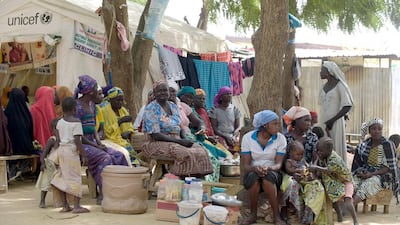Britain’s Home Office has said it will review guidance notes for officials on Nigerian victims of trafficking, after it claimed that some women who have been trafficked to Europe can return home “wealthy from prostitution” enjoying “high social-economic status”.
The comment was made in recently-updated guidance for Home Office officials handling protection and human rights claims.
Last month, an additional paragraph was added into the guidance, last revised in 2016, suggesting that some victims of human trafficking can return to Africa “with improved income prospects”.
“Trafficked women who return from Europe, wealthy from prostitution, enjoy high social-economic status and in general are not subject to negative social attitudes on return. They are often held in high regard because they have improved income prospects,” the additional paragraph reads.
Charities and politicians have called for the passage to be removed and for the Home Office to apologise.
Diane Abbott in the opposition Labour Party called on her counterpart in government, Home Secretary Sajid Javid, to remove the comment.
“Disgusting 'advice' from Home Office on trafficked women from Nigeria. This should be disowned by Sajid Javid immediately,” she tweeted.
Julian Bild, an immigration lawyer working with anti-trafficking charity ATLEU, described the comment as “worrying” for victims of trafficking seeking asylum in Britain.
Mr Bild told The National the notes could be used by asylum decision-makers at the Home Office to reject asylum applications by "putting it into their heads that women are benefiting from being trapped".
“They are not selling themselves. They are not prostitutes. Someone else is selling them and they are told by their traffickers that they are permanently in debt, which they will never pay off. They are not benefiting at all from being sold,” he said.
"It sets up a Pretty Woman idea that these women have agency and are benefiting from sex work. These women have no agency, and that's what we as lawyers try to give them."
Mr Bild said he was concerned the Home Office advice would put victims off coming forward to authorities for fear they will not be taken seriously.
Kate Garbers, director of UK anti-trafficking charity Unseen, said the comments were "astounding" and could be used by Home Office officials to "justify poor decision-making" about the risks victims of trafficking faced upon return to their home country.
"No one person's claim, experience or narrative will be the same and we have to be careful that we as a country are not enshrining institutional racism within guidance documentation towards specific people groups," she told The National.
In 2015 Britain became the first country in the world to pass a modern slavery law in a bid to help an estimated 10,000 victims of slavery and trafficking in the country.
Since the legislation was enacted, there has been a year-on-year increase of potential slavery victims being referred to Britain’s National Referral Mechanism, the system for identifying trafficking victims. In 2018, there were 6,993 referrals, up nearly a third more than the 5,142 referrals made the year before.
However, referrals that end up in successful prosecutions are still low. In 2018, just 65 per cent of prosecutions ended in a conviction, while in 2017 the conviction rate was 61 per cent.
Human rights barrister Dr Charlotte Proudman said the latest Home Office advice brought to light the limitations of Britain’s approach to tackling modern slavery.
"Modern Slavery legislation was a big step in the right direction in recognising the violation of vulnerable individuals. However, there is a high level of inconsistency in the responses to victims with some suffering as a result and many public authorities remain unclear about what the legislation actually says. The number of convictions still remains low in contrast to suspected numbers of modern slavery type abuse," she told The National.
“I have had clients who have been through the national referral mechanism and been told they are not victims of sex trafficking when they clearly are. The definition can be limited and the decision-making variable rather than consistent.”
The Home Office’s updated advice to decision-makers notes that some female victims of trafficking could be subjected to reprisals or re-trafficking.
Zoe Smith, Advocacy Manager at Medaille Trust, which provides safe house beds to victims of modern slavery in the UK, said the statement had been made without giving any evidence.
"The UK has taken impressive steps to combat modern slavery – such as enacting the Modern Slavery Act in 2015, which shone a light on a previously hidden issue and requires businesses to eradicate slavery in their supply chains. In contrast, this statement feels like a real backwards step and we hope the Home Office will reconsider,” she said.
A spokesperson from the Home Office said the inclusion of the paragraph reflected information provided by "two credible sources", the European Asylum Support Office and the Australian Department of Foreign Affairs and Trade.
“Each case must be considered on the facts in the context of the available country information and relevant caselaw. Where a female victim of trafficking is vulnerable to serious harm she will usually be granted protection," the spokesperson said.
“In light of these concerns, we will however review the text of the assessment to avoid it being misinterpreted by decision makers.”


